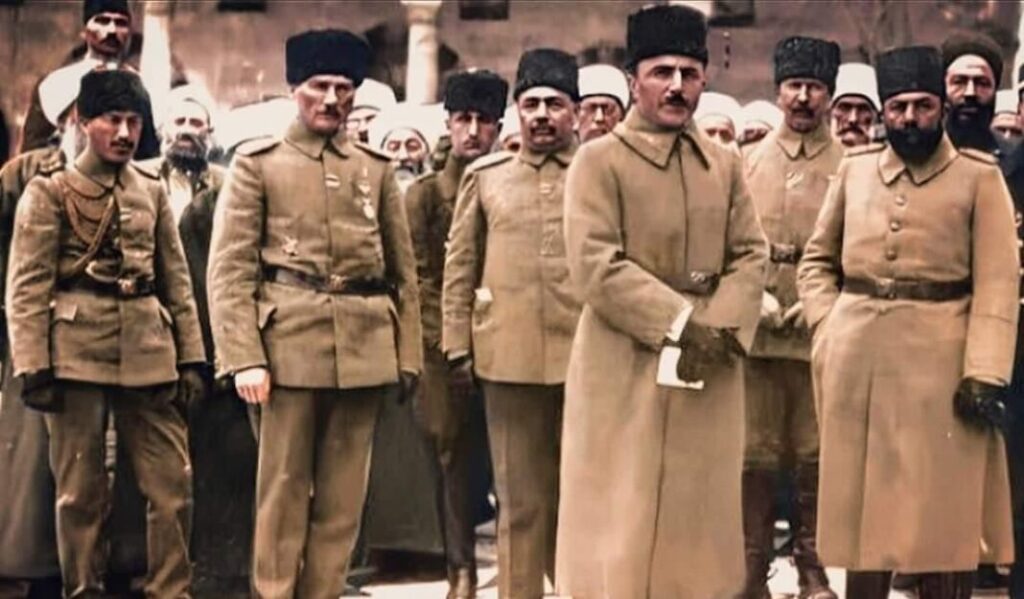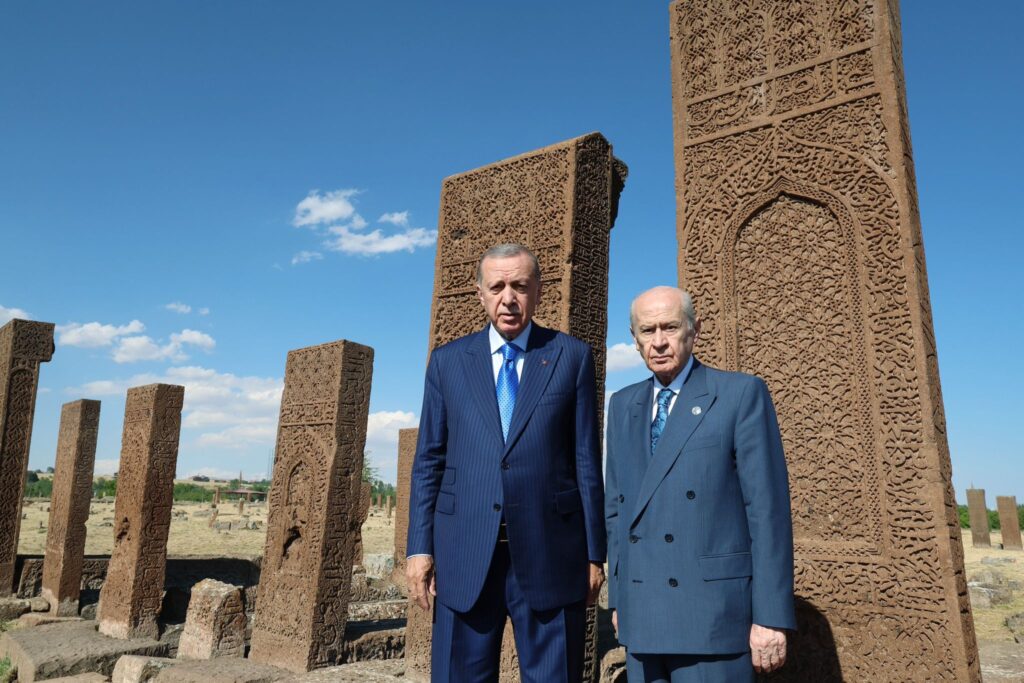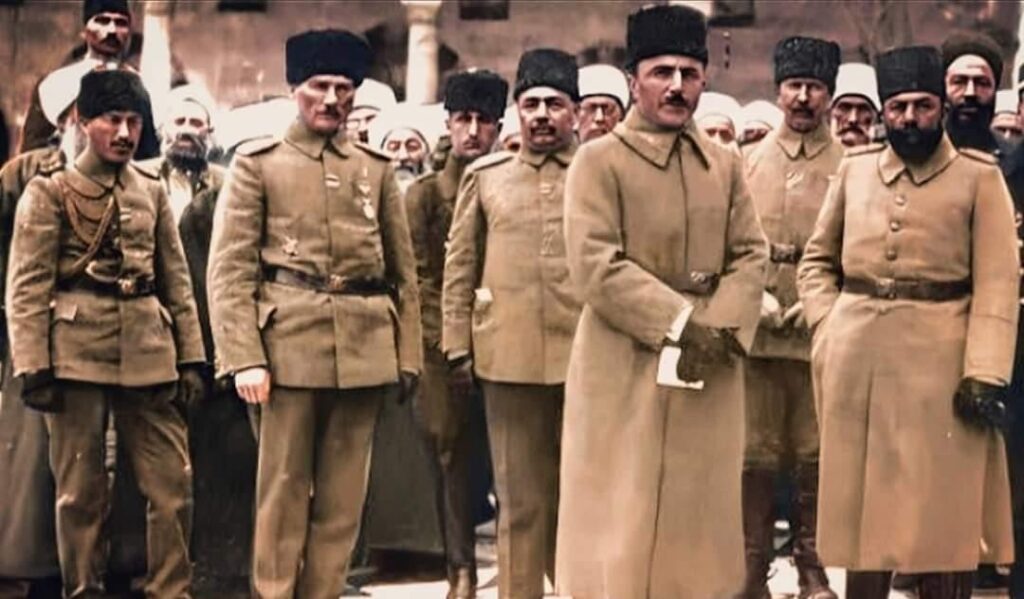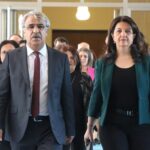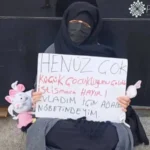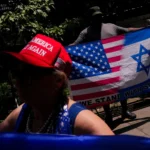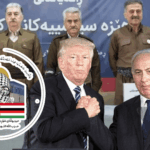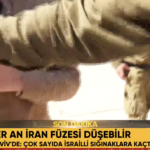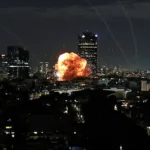Etyen Mahcupyan
The Turkish original of this article was published as ‘IŞİD ve PKK’ on 29th July 2015.
Despite claims to the effect that both IS and the PKK are terrorist organizations, and that therefore there are two legs to the current across-the-border operations, this is not entirely correct. The government saw and declared IS to be an “enemy” right from the outset. Nevertheless, there were two factors preventing the AKP from taking an absolutely clearcut stand. One was the rise of an IS-inclined axis connecting the radical Turkish conservatism of Central Anatolia with the militant Kurdish salafism of the Southeast. Turkey is an open society. If your sociology comprises elements that are capable of being led, by virtue of their inner cultural and ideological codes, in the direction of increasing militancy, and if they have their counterparts across the border, you cannot possibly prevent the emergence of this phenomenon simply by exercising force through the state.
The second factor was the attitude of the US. Turkey was being asked to do all the “dirty work” in Syria by itself while the government was insisting on “doing it together” in order to put some distance between itself and the course of events in the Middle East. What changed everything was the IS coming to occupy its present position. At the end of the day, the US moved closer to Turkey’s position and Turkey took in the direction of becoming an active partner of the coalition fighting IS.
As for operations against the PKK, they took a different turn to arrive at this point. While formally listed as a terrorist organization, the PKK was also regarded as a potential partner. There were hopes that the Solution Process would lead to a possibility of re-integration, and that this might be firmly anchored through a democratic new constitution. Let us not forget that as soon as the AKP came to power it started looking for ways to contact the PKK, and that since 2004 it has kept searching virtually continuously for various means of arriving at a solution.
The PKK, however, never really liked the Solution Process. It adopted an ambivalent attitude while attaching far greater importance to the opportunities that the situation in the Middle East might throw up for it. The collapse of state authority in Syria provided a chance for the PKK to set up its own state. This wasn’t going to be just a Kurdish state but one that the organization would be creating “for itself.” This is why all the other Kurdish parties in Rojava were shattered, and these people were forced to take refuge in Turkey or northern Iraq long before the arrival of IS in the area.
With Turkey left outside the Middle Eastern equation, it became possible for the West to romanticize and instrumentalize this repressive organism. The PKK came to be seen as an extension of the secular and “democratic” civilized world combating radical Islam. With the IS factor appearing to have transformed the US into a “partner,” the horizons of the PKK’s imagination expanded to assume fantastic dimensions. They started thinking that it might be possible to bring Turkey to its knees. For this the critical condition was to somehow terminate the Solution Process. This is why the HDP wholly crossed over to the anti-HDP camp, and declared that there could be no cooperation with the AKP whatsoever.
Meanwhile, in the Turkish East and Southeast the PKK took public order under its own hegemony in order to start taking steps for setting up a parallel state. On the way to the elections extortion from businessmen became much more systematic; businesses “without permits” were penalized through extra “taxes”; their work machines were set afire. The PKK went so far as to set up its own courts so as to refer justice to this parallel system.
Not wishing to damage the Solution Process, the government kept tolerating all this up to a point. The PKK, however, was bent on using all its power to halt that very process. Their entire post-election stance and statements, and finally these last killings, made it unrealistic and unethical to persist in taking the PKK as an interlocutor. Presently the PKK is once more pursuing a line of pawning politics to violence. But in the wake of the recent understanding between Turkey and the US, it is now a wholly new game.
Real life is issuing an invitation to the organization to turn realistic. If it succeeds in doing so, it may retain a modest role on the stage. If not, it will not be able to prevent the Kurds themselves from becoming a burden for it, and it will truly remain as nothing more than a terrorist organization.
Yazıyı beğendiysen, patronumuz olur musun?
Evet, çok ciddi bir teklif bu. Patronumuz yok. Sahibimiz kar amacı gütmeyen bir dernek. Bizi okuyorsan, memnunsan ve devam etmesini istiyorsan, artık boş olan patron koltuğuna geçmen lazım.
Serbestiyet; Türkiye'nin gri alanı. Siyah ve beyazlar içinde bu gri alanı korumalıyız. Herkese bir gün gri alanlar lazım olur.




